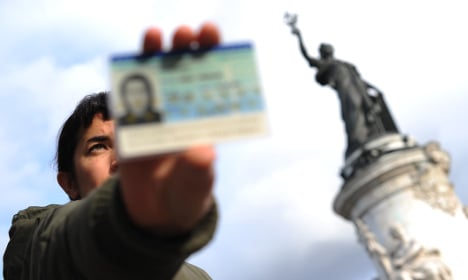Law professor Patrick Weil knows a thing or two about citizenship, nationality and migration. In fact he is the country's leading voice on the subject and has advised those in power on matters related to citizenship.
It was Weil who helped put French president François Hollande off the idea of stripping convicted terrorists of their French nationality, because, he argued, it simply wouldn’t work.
Now Weil, the author of the book “How to be French” has turned his attention to Brexit and how France could help out all those tens of thousands of British nationals in France who have been left feeling a little uneasy about their futures since the referendum.
Weil believes the French government should roll out the red carpet for them and offer them an easy route to citizenship.
“Britons in France have been left living in uncertainty in terms of their futures and their status,” Weil told The Local. “Many feel very insecure. They don’t know if they will be EU citizens and what consequences that will have.
“The French parliament should make a gesture to all those Britons who want to keep their EU citizenship by allowing them to become French.
“France has always accepted dual citizenship so British nationals would not have to renounce their British passports.

“I have studied these issues in depth and I see no legal issues. France should help those who want to secure their future by saying if you want to become French, you can. It doesn’t have to be obligatory.
Currently British nationals who want to take French citizenship through the naturalisation route have to have lived in the country for five years, which of course many have, but not all.
They also have to prove they are sufficiently integrated with one of those requirement being a language test. For those who want to gain citizenship by marrying a French partner, they need to have been wedded for at least four years.
Weil believes the rules should be relaxed following the referendum.
“It could be done for those who have lived in France for one year, or for those who have been married to their French partner for one year,” Weil said.
“If they meet these requirements then they should be able to apply immediately,” he added.
Weil believes the move, which he believes could be implemented immediately and is not unprecedented in French legal history, would have the support of many French MPs in parliament.
The professor backed up his argument in a powerful column in French newspaper Le Monde.

“Let’s remember Churchill, and have France offer its citizenship to the British!” Weil writes.
“In France, British citizens have contributed to the revival of a great number of villages abandoned by their native population,” he says.
“They have voted in local elections, have been elected to municipal councils, and actively participate in the life of local communities. To all Britons who have formed such attachments to France, our message can only be one of welcome.
“And this welcome can, and must, take the form of immediate French citizenship for those that seek it.”
Weil adds: “It would not presume to determine the future of the UK within the EU. Rather, it would serve to send the message that the French have not forgotten their common past with the UK, and that they remain willing to build a future together.”
Last week Christopher Chantrey who is chairman of the British Community Committee of France told The Local his organisation has received numerous enquiries from people wanting to know how they can best safeguard their lives in France.
“In some cases people are applying for French citizenship while others are going down the path of trying to get a permanent residency permit,” said Chantrey.
“They see it as an insurance policy because at the moment there is a huge cloud of uncertainty hanging over them.”
“It’s early days but they just don’t know what will happen.”
Many would presumably support Weil’s idea.
French PM Manuel Valls suggested that the government could take a measure for British expats in an interview with Le Parisien newspaper, but did not specify what he had in mind.
“I am thinking particularly of taxation and the status of expatriates. So I say to major international companies: Welcome to Paris! Come and invest in France!,” Valls said.
And a similar idea has been mooted in Germany where vice chancellor Sigmar Gabriel said: “Let us offer it (citizenship) to Britons who live in Germany, Italy or France, so they can remain European Union citizens in this country.”
If France did allow British citizens to become French, Weil does not expect the government in London to reciprocate the move.
“If they did it for the French, they would have to do it for the Romanians and the Polish and that would undermine one of the main motives for Brexit,” he said.



 Please whitelist us to continue reading.
Please whitelist us to continue reading.
Member comments